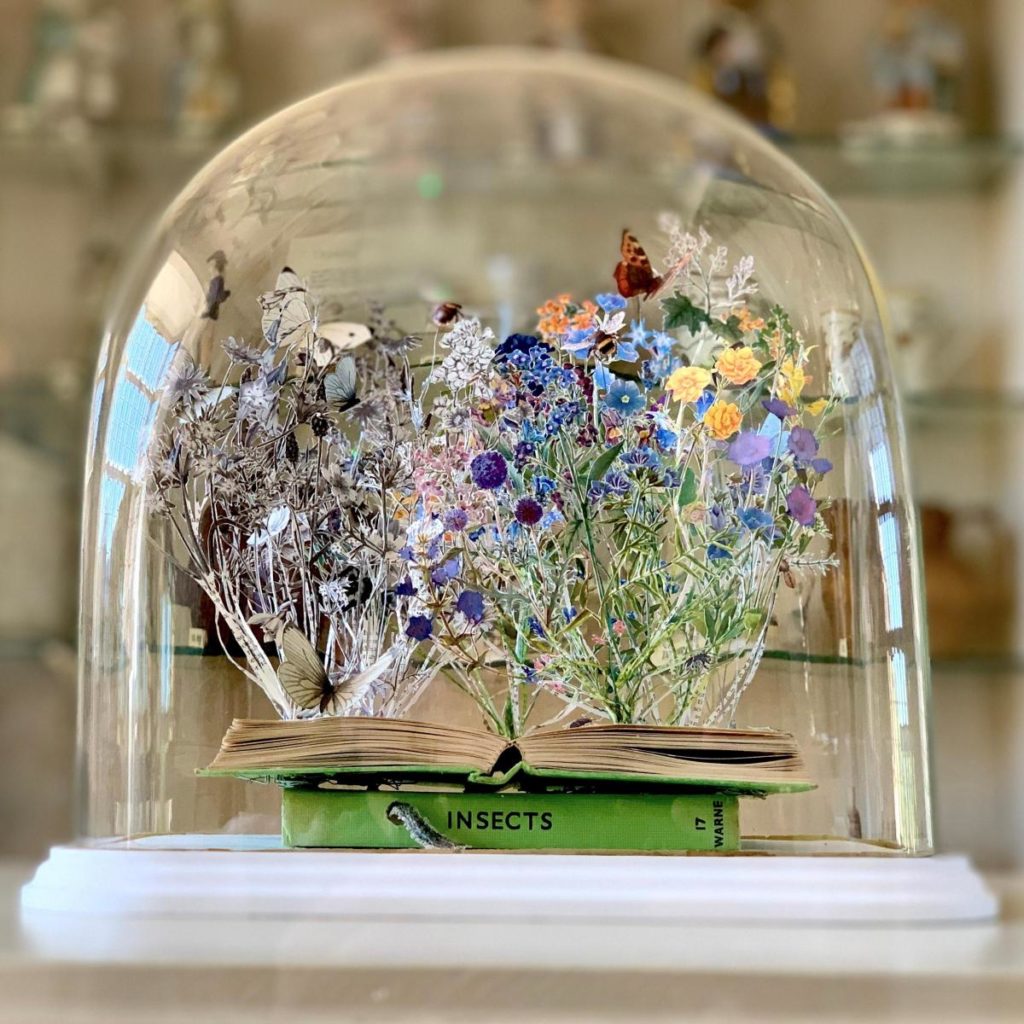Careers in entomology
Entomology is the study of insects, entomologists are people who study insects. There are many different roles for entomologists and insect scientists, and many can work all over the world in varied environments.
On this page we will go into some of these roles and see individuals already progressing in the field.
Ready to jump in? You can find current vacancies with external organisations on our Job Opportunities page.
Training in entomology
It may be possible to enter a career in entomology at trainee or technician level with GCSE’s/S grades and A levels/H grades, or equivalent international qualifications.
Most entomologists however have University bachelor’s (BSc) degrees and some specialise further with Master’s (MSc) and Doctoral studies (DPhil or PhD).
See our entomology courses and PhD opportunities pages for information on further education in entomology and insect science in the UK and Ireland.

Click the titles below to jump to each section of the page.

Agricultural, Forest & Horticulture Entomologists

Manage insect crop pests with chemical, biological and environmental methods.
Find out more on the Royal Horticultural Society and the BASIS websites.
Watch Claire Hoarau talk at EntoSci 2022 about her career and work on biopesticides and cabbage stem flea beetle.
Watch Amma Simon talk at EntoSci 2022 about her career and work on pant pathogens and wheat.
Medical & Veterinary Entomologists

Diagnose and manage insects that cause and can carry human and animal diseases.
Read about this work in a UK Health Security Agency blog.
Watch Public Health Englands’s Medical Entomology Team tracking mosquitoes in North Kent.
Domestic Pest Controllers

Manage insect pests in domestic and business premises.
Find out more at the British Pest Control Association.
Watch the British Pest Control Association’s video about the day in the life of a pest technician.
Insect Farmers

Produce insects for new protein sources and manage honeybees for honey.
Watch Keiran Whitaker, CEO of Entocycle, talk about his work farming insects.
Ecological Consultants

Survey insects to measure the health and value of a habitat.
Find out more on the British Ecological Society and the Chartered Institute of Ecology and Environmental Management.
Biological Recorders

Identify insect species and record their geographic location for ecological data.
Find out more at the National Forum for Biological Recording website.
Watch Leanna Dixon at EntoSci 2022 talk her career and work with the Tanyptera Project on species identification and biological recording.
Zookeepers

Care for populations of rare insect species.
Watch a video with Dave Clarke at London Zoo.
Conservationists

Campaign, fundraise and act to conserve rare insect species.
Watch Graham Smith at EntoSci 2022 talk about his career and work on reintroducing the Chequered Skipper to Rockingham Forest.
Insect Taxonomists

Describe new insect species and research evolutionary relationships between them.
Watch Kanchon Dasmahapatra at EntoSci 2022 talk about his career and work the evolution of Heliconius sp. butterflies.
Museum Curators

Collect and preserve collections of insect specimens for use in scientific research.
Watch a video with Ashleigh Whiffin of National Museums Scotland.
Scientific Researchers

Discover new information about insects from genes to overall biology with experiments and fieldwork.
Watch Will Hawkes at EntoSci 2022 talk about his career and work on insect migration.
Watch Heather Campbell at EntoSci 2022 talk about her career and work on ant and baboon spider ecology.
Watch Seirian Sumner at EntoSci 2022 talk about her career and work on social wasps.
Forensic Entomologists

Use insects to provide evidence for legal cases.
Watch Amoret Whitaker and Luca Manelli at EntoSci 2022 talk about their caeers and work in forensic entomology, access the associated worksheet (docx) and materials (pdf)
Watch Amoret Whitaker and Luca Manelli at EntoSci 2022 summarise the forensic entomology worksheet (docx) and materials (pdf).
Science Communicators

Use insects to connect people with science and nature via words, images and videos.
Watch Graham and Janice Smith of Metabugs talk at EntoSci 2022 about their work with insects in film, TV and documentaries.
Artists

Are inspired by or work with insects to create fine art, performance art or literature.
Read about Bridget Bailey’s ‘Taxonomy of Making‘, part of the Insect Odyssey exhibition at Salisbury Museum.
 Su Blackwell‘s ‘Books of Insects and Flowers’ at the Insect Odyssey exhibition.
Su Blackwell‘s ‘Books of Insects and Flowers’ at the Insect Odyssey exhibition.
Teachers & Lecturers

Inspire students at all levels from school up to university about insects.
Read about keeping insects in the classroom and find learning resources on our Insect Week website.
Engineers

Use insects as inspiration for new technologies to save the world.
Read about how insects have inspired miniature robots, better surgical needles, and jumping robots.
 insect-inspired robot by Junfeng Gao, Univerisity of Pittsburgh
insect-inspired robot by Junfeng Gao, Univerisity of Pittsburgh
This is not an exhaustive list of the many fields of work that entomologists can get involved in, but we hope we have shown how valuable and diverse entomology can be as a science and a career path.